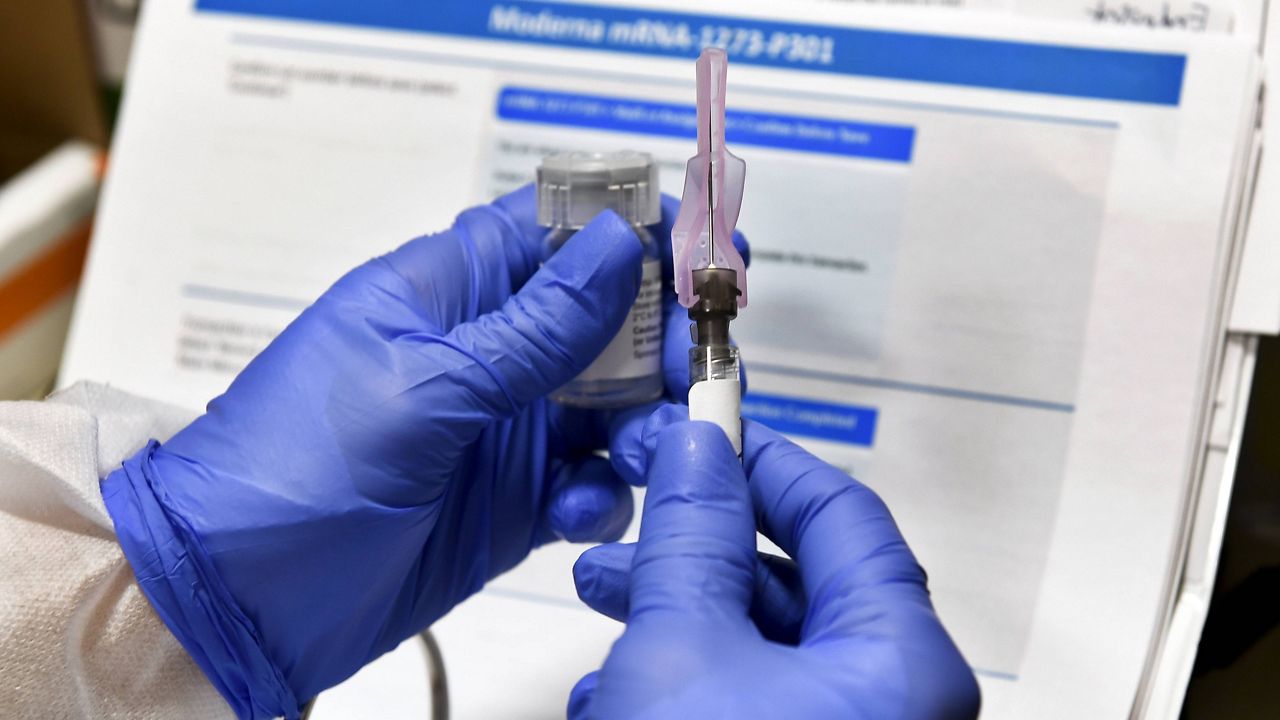CAMBRIDGE, Mass. — Moderna is targeting December for applying for emergency use authorization of its coronavirus vaccine, if all goes well.
CEO Stéphane Bancel told The Wall Street Journal on Monday that the company is hoping to receive positive interim results in November from its large clinical trial. If that timeline holds, it could mean approval from the Food and Drug Administration for emergency use by December.
But Bancel conceded that, if sufficient data takes longer to obtain, it could be early 2021 before Moderna receives the government’s OK. The first interim analysis of the vaccine requires 53 participants in the 30,000-person clinical trial to contract symptomatic COVID-19, but "it's hard to predict exactly which week because it depends on the cases, the number of people getting sick," Bancel said.
Moderna, which co-designed its vaccine with the National Institute of Allergy and Infectious Diseases, might also deem the initial results insufficient if a far greater number from its unvaccinated control group are infected than those who were vaccinated. The company would then have to conduct a second analysis using 106 cases, which would delay the approval process.
Vaccine makers must also monitor the safety of its study subjects for two months after they received the second dose of the vaccine before approaching the FDA.
Bancel said Moderna expects to produce about 20 million doses of its vaccine by the end of the year and at least 500 million doses in 2021.
His remarks Monday suggest that Moderna is on a similar timeline to the vaccine being co-developed by Pfizer and its German partner, BioNTech. Pfizer CEO Albert Bourla said last week it would be the third week of November at the earliest that it could ask for emergency authorization of that vaccine.
Two other companies — Johnson & Johnson and AstraZeneca — have also entered late-stage trials with their vaccine candidates. Johnson & Johnson’s trial has been paused since last week due to a study participant's "unexplained illness.” AstraZeneca’s trial also was briefly paused last month because of a possible adverse reaction in a participant in the U.K.



